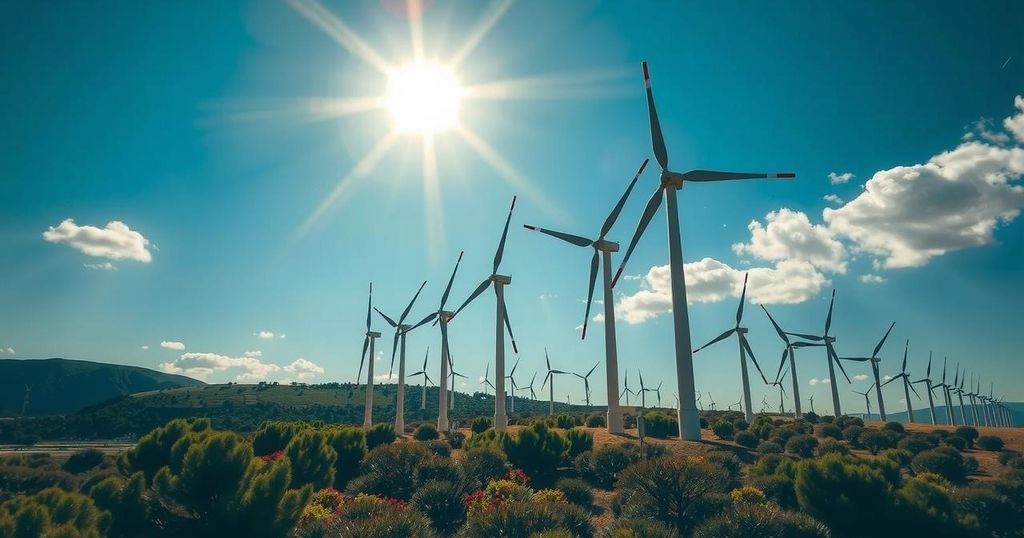Impact of Weather and Wind Energy on Dutch and British Gas Prices

Mild weather and increased wind power generation have prompted a decrease in gas prices in the Netherlands and Britain. The Dutch TTF hub’s benchmark front-month contract has fallen to €39.40 per megawatt-hour, while British contracts have decreased to 94.90 pence per therm. Analysts anticipate a modest increase in demand during the workweek despite slight reductions in Norwegian gas exports and persistent geopolitical tensions injecting volatility into the market.
Recent weather trends and an uptick in wind energy production have contributed to a noteworthy decline in gas prices in both the Netherlands and Britain. The prevailing above-average temperatures have resulted in a decrease in gas demand, leading to price reductions at pivotal trading locations. For instance, the benchmark front-month contract at the Dutch TTF hub has fallen to €39.40 per megawatt-hour, while British weekend contracts now rest at 94.90 pence per therm. Furthermore, analysts predict a modest increase in demand of 88 GWh/d during the weekday, aided by stable usage from gas-fired power plants. However, it should be noted that Norwegian gas exports have experienced a slight drop due to extended maintenance activities, and there is currently a narrow price disparity between Asian and European markets that diminishes incentives for American liquefied natural gas (LNG) exporters. Nonetheless, ongoing geopolitical tensions, particularly those involving Israel and Hezbollah, continue to pose significant risks to the energy market dynamics, highlighting the intricate interdependencies that define global gas supply and pricing.
This situation arises against the backdrop of varying climate factors and energy market pressures significantly affecting gas prices. As European temperatures increase, the resulting decrease in demand correlates with a drop in prices at major trade hubs. The interplay between weather conditions, expected wind energy generation, and geopolitical events portrays a complex scenario in the energy sector, thus requiring keen observation from investors and market participants alike. The influence of climate events on energy markets illustrates the necessity for strategic forecasting amidst prevailing uncertainties.
In summary, the combination of mild weather and enhanced wind energy production have provided relief in the Dutch and British gas markets, as prices have experienced a decline. Yet, the specter of geopolitical instability continues to loom, serving as a crucial reminder that energy pricing and supply are heavily influenced by global events. Investors are advised to remain vigilant regarding these developments and the potential shifts in energy market dynamics that may evolve.
Original Source: finimize.com






